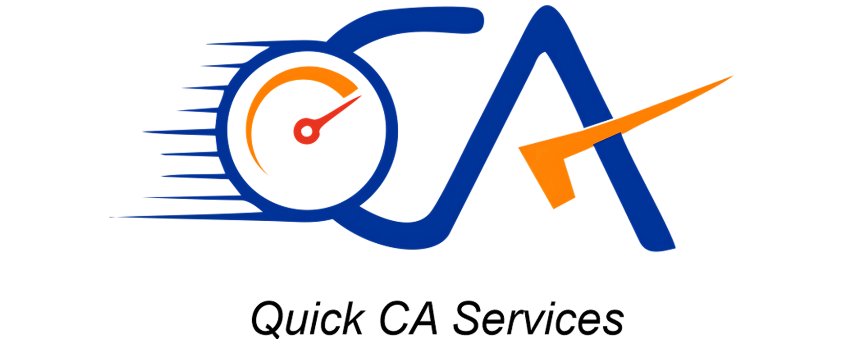Patent Registration in India

Company Registration

GST Registration

FSSAI Registration

ITR Filing

IEC Certificate

MSME Registration
SEND US AN EMAIL
Patent Registration @ ₹ 60,999/-*
- Patentability Assessment
- Patent Drafting (Provisional/Complete)
- Patent Filing with Indian Patent Office
- Application Number & Filing Acknowledgement
- Request for Early Publication (Optional)
- Assistance with Examination Request
- Response to First Examination Report (FER)
- Patent Grant Certificate (Upon Approval)
- Advisory on Patent Rights & Monetization
- Includes Government & Professional Fees
Prices may vary based on type of applicant (individual/startup/company) and number of claims filed
Criteria for filing a Patent:
- Novelty: i.e. some part of it has a new growth and has not been published in India before the date of filing of the patent application in India.
- Inventive Step: If someone who is expert in that particular field would consider the invention to be a surprising development on the invention date.
- Industrial Applicability: Invention should be helpful, such that it can be used in an business.
Procedure of Patent Registration in India:
- Patentability/Novelty Search
- Patent Drafting
- Patent Filing Publication
- Request for Examination
- Issuance of Examination Report
- Hearing with the Controller
- Grant of Patent
Other Services
Patent Registration
Have you invented a new product, process, or technology? Protect your innovation with a patent — and you’re at the right place!
At Mangalam Taxsavo Consultants Pvt. Ltd., we provide expert Patent Registration services to help inventors, startups, and companies secure exclusive rights over their inventions across India.
About Patent Registration
A patent is an exclusive legal right granted to an inventor for a novel invention—be it a product, process, or technical solution. Governed by the Patents Act, 1970 and the Patents Rules, 2003 (as amended), patent registration safeguards your innovation from unauthorized use, manufacture, or sale by others. This legal protection encourages innovation and can significantly increase the commercial value of your intellectual property.
To register a patent in India, the invention must be new, non-obvious, and industrially applicable. Once granted, a patent provides the inventor exclusive rights for up to 20 years, offering a competitive edge in the market and potential licensing or monetization opportunities. Whether you’re a startup, entrepreneur, or R&D-driven company, patent registration is a vital step in protecting and leveraging your innovation.
Characteristics of Patent Registration in India
Patentability Criteria: The invention must be novel, non-obvious (inventive step), and capable of industrial application. It should not fall under non-patentable subject matter as defined in the Patents Act, 1970.
Applicant Eligibility: A patent can be filed by the true and first inventor, an assignee, or a legal representative of a deceased inventor. Applicants can be individuals, companies, startups, or educational institutions.
Exclusive Rights: A granted patent provides the inventor the exclusive right to make, use, sell, and license the invention for 20 years from the date of filing.
Legal Protection: Once patented, others are prohibited from using or copying the invention without the patent holder’s permission. Legal action can be taken against infringement.
Patent Types: You can file for:
-
Provisional Application (for securing priority while still developing the invention)
-
Complete Specification (final application with full technical details)
International Protection: Patent rights are territorial, but international protection can be sought through the PCT (Patent Cooperation Treaty) or Paris Convention routes.
Public Disclosure: After publication (18 months from the filing date), the invention becomes publicly available, helping to establish innovation precedence.
Examination Process: A Request for Examination (RFE) must be filed within 48 months of the priority date. The patent is examined, objections may be raised, and a hearing may be conducted before grant.
Annuity Payments: To keep the patent in force, renewal fees must be paid annually from the 3rd year onward up to the 20th year.
Patent Number: Once granted, a unique Patent Number is issued, signifying the legal protection granted to the invention.
Requirements for Patent Registration
Inventors (Applicants)
-
Minimum: One applicant (can be the inventor, assignee, or legal representative).
-
Eligibility: Individual, company, startup, educational institution, or legal heir.
-
Multiple inventors can jointly apply for a patent.
Nationality Requirements
-
At least one applicant should be an Indian resident for a patent filed under the Indian Patent Office, if claiming startup/MSME benefits.
-
Foreign nationals/entities can also apply through authorized patent agents.
Invention Name/Title
-
Must be unique, descriptive, and relevant to the invention.
-
Avoid vague terms; clearly reflect the technical field and objective.
Correspondence Address
-
A valid communication address (Indian or foreign) must be provided for all notices and documentation.
-
Indian address required for correspondence if the applicant is a foreign entity.
Digital Signature Certificate (DSC)
-
Required for filing the patent application electronically with the Indian Patent Office (IPO).
-
Must be obtained from a government-authorized certifying agency.
-
Applies to individual inventors, legal entities, or authorized patent agents.
Professional Assistance
-
Documents and patent drafts must be prepared or verified by professionals such as:
-
Registered Patent Agents
-
Patent Attorneys
-
Chartered Engineers (for technical specifications)
-
-
Professional certification ensures compliance with the Indian Patent Act and formalities during filing.
Advantages of Patent Registration
Exclusive Rights
Grants the inventor legal protection to exclusively make, use, sell, or license the patented invention for 20 years — preventing others from copying or exploiting it without permission.
Competitive Edge
Provides a strong market advantage by protecting innovative ideas, deterring competitors, and allowing for product differentiation and technological leadership.
Revenue Opportunities
Patents can be licensed, franchised, or sold — offering a recurring or lump sum income stream and attracting strategic partnerships and investors.
Boosts Valuation
Holding intellectual property significantly increases the valuation of startups or businesses, especially during fundraising or acquisitions.
Credibility & Branding
A granted patent reflects technological innovation, enhancing the company’s brand image, market reputation, and credibility among customers and investors.
R&D Encouragement
Supports and encourages internal research and development (R&D), fostering innovation and advancement in products or services.
Global Protection
Through international treaties like PCT (Patent Cooperation Treaty), inventors can seek protection in over 150 countries with a single international filing.
Monetary Incentives
Startups, MSMEs, and academic institutions may be eligible for government subsidies, tax benefits, and reduced filing fees on patent registrations.
⚠️ Key Considerations
Invention must be novel, non-obvious, and industrially applicable.
A patent search is recommended to ensure originality.
Complete and accurate documentation, including specifications and claims, is critical.
Annual renewal fees must be paid to keep the patent active.
Not all ideas or methods qualify for patent protection (e.g., abstract theories, algorithms without application).
Patent registration is essential for innovators, startups, research institutions, and R&D-focused enterprises to safeguard their inventions, monetize their innovations, and gain a legal edge in a competitive market.

